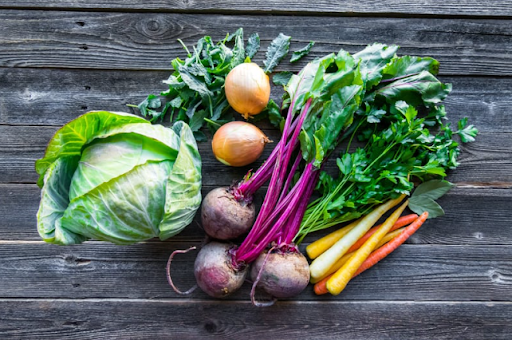- Organic
- sustainable
- fresh from the farm
- from our family to yours
- Community
- packaged with care
- family owned
Home » Which Produce is Worth the Organic Premium?
In a world where ‘organic’ is becoming a buzzword, many are left puzzled over which fruits and vegetables truly deserve the organic label, and which ones might just be better left on the conventional shelf. The benefits of eating organic are well known: organic fruits and vegetables are grown without synthetic pesticides or fertilizers, are often more nutrient-dense, and contribute to sustainability. However, with so many factors to consider, such as cost, availability, and conflicting information, it can be difficult to know which organic produce to prioritize.
Ready to make healthier choices? Discover fresh, organic produce that can support your well-being, without the guesswork.

When purchasing organic produce, the debate often centers around which foods warrant the higher price tag. There’s no one-size-fits-all answer because your priorities may depend on factors like personal health needs, environmental concerns, and budget constraints. However, many people struggle with the confusion of what to prioritize when buying organic.
The Environmental Working Group (EWG), a nonprofit organization that tracks pesticide residues on food, releases an annual list called the Dirty Dozen, which highlights fruits and vegetables with the highest levels of pesticide contamination. These are the produce items that you should prioritize buying organic. Conversely, the Clean Fifteen list identifies fruits and vegetables with lower pesticide residues, making them safer options to purchase conventionally grown.
Understanding the nuances between these lists and the impact of pesticides can help consumers make educated choices. However, there are still many factors to consider beyond just pesticide levels—things like nutrient content, environmental impact, and one’s own health needs.

Cost is one of the most common concerns when buying organic. Organic produce often comes at a premium price due to the more labor-intensive farming practices, lower crop yields, and the certification process. While it’s true that organic produce can be more expensive, it’s important to weigh the value it brings to your health and the environment.
Research shows that organic produce often contains more antioxidants, essential vitamins, and minerals. Organic farming practices also promote soil health and reduce environmental pollution caused by chemical pesticides. Organic options may be worth the investment for those concerned about long-term health issues related to pesticide exposure.
That said, you don’t have to buy everything organic. You can balance your budget and health by focusing on the most pesticide-prone fruits and vegetables and opting for conventional options with fewer pesticides. Many shoppers find success by purchasing organic for the highest-risk produce while supplementing with conventional fruits and vegetables when it makes sense financially. Don’t let cost hold you back from making healthier choices—explore affordable organic options that fit your business.
Another challenge many consumers face is limited access to organic produce, especially in rural or less densely populated areas. While major supermarkets may offer various organic options, smaller local stores or farmer’s markets may not have the same selection. Finding the right balance can be especially tricky for individuals without easy access to organic options.
Many people look for local organic farmers or community-supported agriculture (CSA) programs that provide affordable and fresh organic produce to overcome this barrier. Buying organic directly from a local farm may reduce costs by cutting out the middleman. Additionally, supporting local farmers contributes to the sustainability of your community and the environment.
When deciding what fruits and vegetables to buy organic, it’s essential to consider those that tend to absorb more pesticides or have higher pesticide residues. According to the EWG’s Dirty Dozen list, the following fruits and vegetables should be organic whenever possible:
Protect your health with every bite. Choose organic produce from Summers Wellness Farm for cleaner, safer fruits and vegetables that nourish the body without the worry.
Choosing the right fruits and vegetables to purchase organically doesn’t have to be a daunting task. By focusing on the produce most likely to contain harmful pesticide residues, such as strawberries, spinach, and apples, you can reduce your exposure to chemicals while supporting your health. When purchasing, remember to weigh the benefits of organic farming for the environment and your well-being. Why settle for less when you can have the best? Browse our selection of organic produce and give your body the nutrition it deserves.
